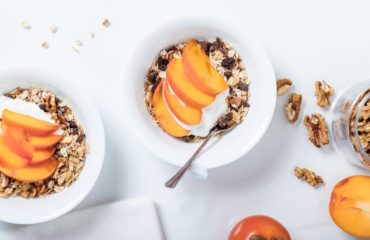
The craving for sweets is a fairly common story among people who suffer from anxiety. But sugar is alarming and should be avoided. Unfortunately, even if we know we need to cut down on sugar, we often worry about something sweet. And there is an explanation for this.
Sugar has the ability to temporarily suppress an area of the brain that is normally active during anxiety, stopping the release of the stress hormone (cortisol). That’s why we can be relieved when we eat something sweet, which often leads to addiction.
But scientists have shown that sugar consumption increases anxiety and reactivity to stress, which leads to greater anxiety. One study published in 2017 found that sugar can increase the risk of mood disorders in both men and women. Sugar intake causes sudden spikes and drops in blood sugar, which cause irritability, nervousness and bad mood, which negatively affects the state of anxiety.
Researchers believe that this affects long-term mental health and suggest that lower sugar intake may be associated with better mental health.
Sugar has been linked to inflammation, nutrient deficiencies, weight gain, diabetes, obesity, heart, kidney and liver disease, and studies have shown that these conditions can lead to more anxiety and other mental health problems.
Refined sugar and sugar-containing foods are usually poor in nutrients. In addition, sugar depletes and reduces the absorption of key vitamins and minerals, and this affects the work of the brain and nervous system.
So, to cope with your anxiety, you should start to exclude sweet foods. It’s not easy. But with time and perseverance you can reduce cravings for sugar and gradually eliminate refined sugar from your diet.
For starters, avoid obvious culprits such as cakes, cookies, chocolate, puddings, cakes, ice cream, milkshakes, waffles and more.
Also, make it a habit to read the list of ingredients on food labels, as 75% of packaged foods contain added sugar. Keep in mind that even so-called healthy foods, such as muesli bars, yogurts, smoothies, may contain added sugar.
What can you eat instead?
Fruits contain many useful nutrients and can meet the need for sweet foods. But you should also limit fruit consumption to 2-3 per day.
Fruits contain a lot of simple sugar, and its consumption in large quantities can affect blood sugar and anxiety.
A healthy and balanced diet can help increase the consumption of natural products, leaving less space for everything that is processed and contains added sugar! A healthy diet will also reduce sugar cravings.
Recommendations:
1. Eat two or three fruits a day.
2. Stevia is the best natural sweetener.
3. Start eating sweet vegetables to control your cravings for sugar, such as zucchini, pumpkin and carrots.
4. Avoid going to the store when you are hungry.
5. Always read product labels. Long-term storage products, canned food and sauces often contain hidden sugar.



